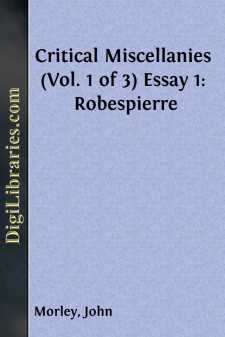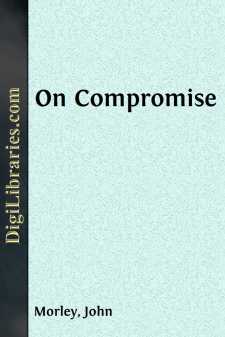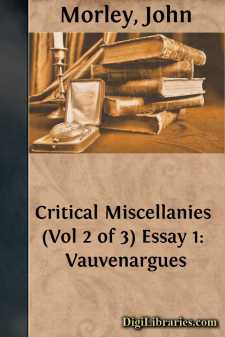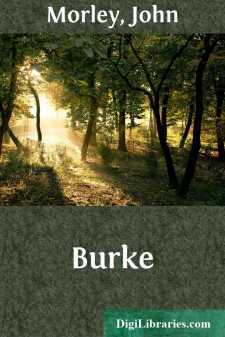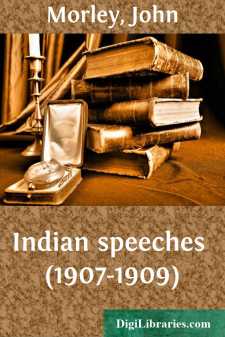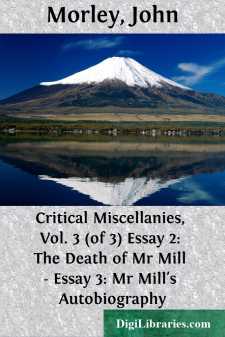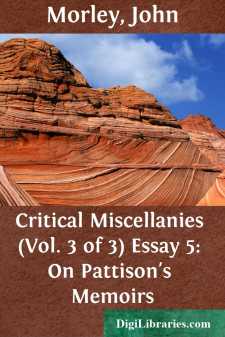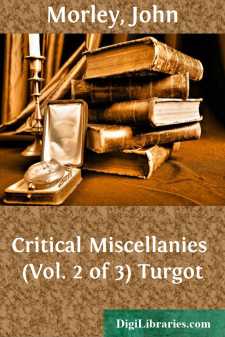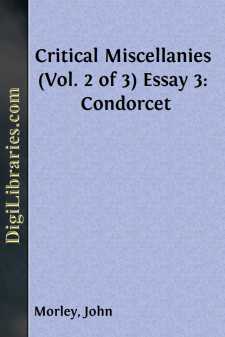Categories
- Antiques & Collectibles 13
- Architecture 36
- Art 48
- Bibles 22
- Biography & Autobiography 813
- Body, Mind & Spirit 142
- Business & Economics 28
- Children's Books 17
- Children's Fiction 14
- Computers 4
- Cooking 94
- Crafts & Hobbies 4
- Drama 346
- Education 46
- Family & Relationships 57
- Fiction 11829
- Games 19
- Gardening 17
- Health & Fitness 34
- History 1377
- House & Home 1
- Humor 147
- Juvenile Fiction 1873
- Juvenile Nonfiction 202
- Language Arts & Disciplines 88
- Law 16
- Literary Collections 686
- Literary Criticism 179
- Mathematics 13
- Medical 41
- Music 40
- Nature 179
- Non-Classifiable 1768
- Performing Arts 7
- Periodicals 1453
- Philosophy 64
- Photography 2
- Poetry 896
- Political Science 203
- Psychology 42
- Reference 154
- Religion 513
- Science 126
- Self-Help 84
- Social Science 81
- Sports & Recreation 34
- Study Aids 3
- Technology & Engineering 59
- Transportation 23
- Travel 463
- True Crime 29
Sort by:
by:
John Morley
A French writer has recently published a careful and interesting volume on the famous events which ended in the overthrow of Robespierre and the close of the Reign of Terror. These events are known in the historic calendar as the Revolution of Thermidor in the Year II. After the fall of the monarchy, the Convention decided that the year should begin with the autumnal equinox, and that the enumeration...
more...
by:
John Morley
CHAPTER I. INTRODUCTORY.The design of the following essay is to consider, in a short and direct way, some of the limits that are set by sound reason to the practice of the various arts of accommodation, economy, management, conformity, or compromise. The right of thinking freely and acting independently, of using our minds without excessive awe of authority, and shaping our lives without unquestioning...
more...
by:
John Morley
VAUVENARGUES. One of the most important phases of French thought in the great century of its illumination is only thoroughly intelligible, on condition that in studying it we keep constantly in mind the eloquence, force, and genius of Pascal. He was the greatest and most influential representative of that way of viewing human nature and its circumstances, which it was one of the characteristic glories...
more...
by:
John Morley
BYRON. It is one of the singular facts in the history of literature, that the most rootedly conservative country in Europe should have produced the poet of the Revolution. Nowhere is the antipathy to principles and ideas so profound, nor the addiction to moderate compromise so inveterate, nor the reluctance to advance away from the past so unconquerable, as in England; and nowhere in England is there...
more...
by:
John Morley
CHAPTER I EARLY LIFE, AND FIRST WRITINGS It will soon be a hundred and twenty years since Burke first took his seat, in the House of Commons, and it is eighty-five years since his voice ceased to be heard there. Since his death, as during his life, opinion as to the place to which he is entitled among the eminent men of his country has touched every extreme. Tories have extolled him as the saviour of...
more...
by:
John Morley
I ON PRESENTING THE INDIAN BUDGET (HOUSE OF COMMONS. JUNE 6, 1907) I am afraid I shall have to ask the House for rather a large draft upon its indulgence. The Indian Secretary is like the aloe, that blooms once in 100 years: he only troubles the House with speeches of his own once in twelve months. There are several topics which the House will expect me to say something about, and of these are two or...
more...
by:
John Morley
THE DEATH OF MR. MILL. (May 1873.) The tragic commonplaces of the grave sound a fuller note as we mourn for one of the greater among the servants of humanity. A strong and pure light is gone out, the radiance of a clear vision and a beneficent purpose. One of those high and most worthy spirits who arise from time to time to stir their generation with new mental impulses in the deeper things, has...
more...
by:
John Morley
ON PATTISON'S MEMOIRS. To reckon the subject of this volume among leading minds who have stamped a deep influence on our generation, is not possible even to the friendliest partiality. That was not his position, and nobody could be less likely than he would himself have been to claim it. Pattison started no new problem. His name is associated with no fertile speculation, and with no work of the...
more...
by:
John Morley
I. Anne-Robert-Jacques Turgot was born in Paris on the 10th of May 1727. He died in 1781. His life covered rather more than half a century, extending, if we may put it a little roughly, over the middle fifty years of the eighteenth century. This middle period marks the exact date of the decisive and immediate preparation for the Revolution. At its beginning neither the intellectual nor the social...
more...
by:
John Morley
CONDORCET. Of the illustrious thinkers and writers who for two generations had been actively scattering the seed of revolution in France, only Condorcet survived to behold the first bitter ingathering of the harvest. Those who had sown the wind were no more; he only was left to see the reaping of the whirlwind, and to be swiftly and cruelly swept away by it. Voltaire and Diderot, Rousseau and...
more...


